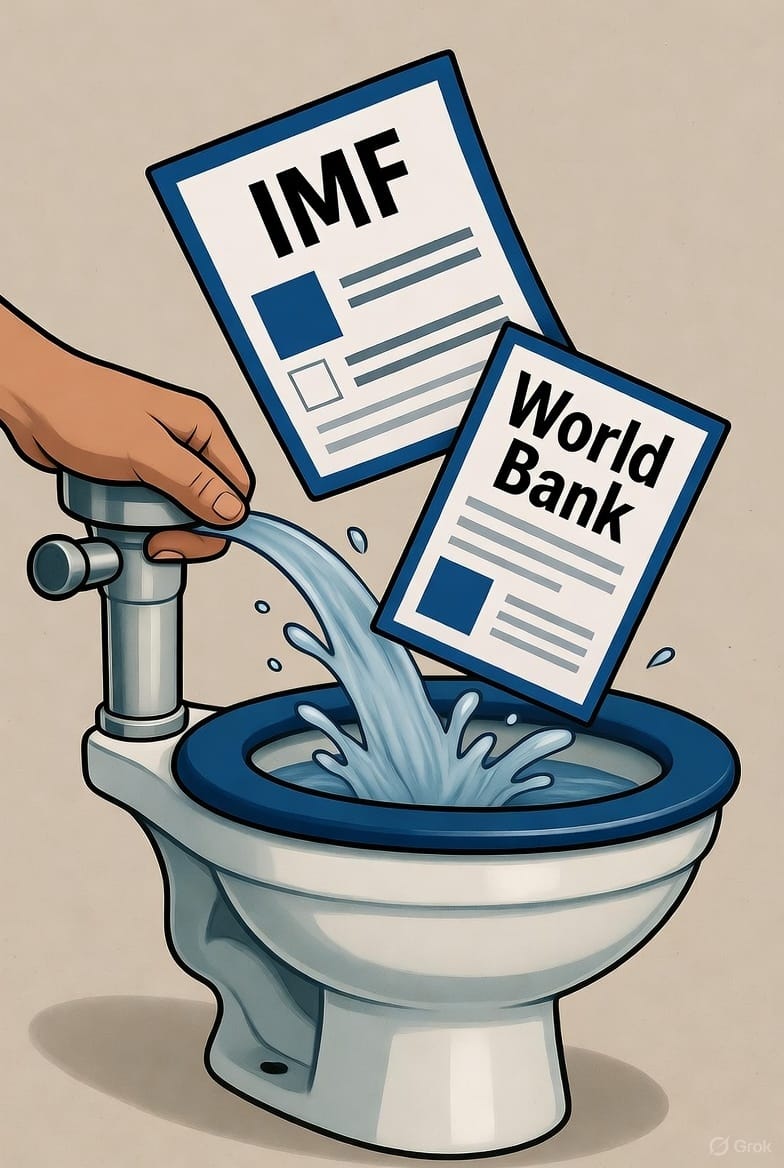- Shortlysts
- Posts
- Bessent Pressures IMF and World Bank to Refocus on Economic Stability and Confront China
Bessent Pressures IMF and World Bank to Refocus on Economic Stability and Confront China
Bessent calls on IMF and World Bank to drop social agendas, refocus on economic reform, and hold China accountable for its policies.

What Happened
U.S. Treasury Secretary Scott Bessent is urging the International Monetary Fund and World Bank to return to their core missions and stop prioritizing climate, gender, and other social agendas.
Speaking at a global finance meeting, Bessent criticized the institutions for what he called ‘mission drift’ and called for a sharper focus on macroeconomic stability and accountability, especially when it comes to China.
Bessent argued that China should no longer be treated as a developing country and that multilateral funding should be redirected to poorer nations with genuine needs. He questioned why an economy of China’s size and influence continues to receive support from the World Bank while its industrial policies distort markets and hurt global competition.
His remarks come at a time when the U.S. holds considerable sway within both institutions. Bessent’s comments reflect a heightened initiative of the Trump administration to align international financial bodies with U.S. strategic goals and economic principles.
Why It Matters
The IMF and World Bank were originally designed to support global financial stability and economic development in poorer countries. Over the last decade, however, both institutions have added climate change and gender equality to their funding priorities, which has drawn criticism from leaders who argue that these social goals should not override the core mission of economic discipline, financial reform, and responsible lending.
Bessent’s remarks show that the U.S. is no longer willing to fund global institutions that drift into political activism or soft policy areas that produce little measurable return. Instead, the Treasury Department wants tighter standards, clearer economic results, and stronger scrutiny of countries, particularly China, that benefit from the system while refusing to play by its rules.
This is about the strategic use of U.S. influence and tax dollars in a world where economic rivalry is intensifying. By forcing a rethink at the IMF and World Bank, the U.S. is drawing a line in the sand between hard economic policy and what it views as performative globalism.
How It Affects You
If Bessent’s push succeeds, it will reshape how global financial institutions operate and how U.S. funds are used abroad. Expect fewer loans tied to climate or gender initiatives and more focused investment in traditional infrastructure, energy, and financial reform. That could lead to more stable and growth-oriented development in key regions that actually need the help.
It also puts China directly in the spotlight. If the World Bank cuts support for Beijing, and the IMF takes a tougher line on China’s economic practices, the global balance of power in finance could shift. That has ripple effects for American industries, trade policy, and supply chains that depend on fair competition and predictable rules.
For taxpayers, the shift reflects a demand for accountability; U.S. money backs global development, it should be tied to economic discipline, not ideology.
This also speaks to a newer direction under the Trump administration that prioritizes clear national interests, holds powerful players to account, and resists the expansion of international institutions into politically charged territory.